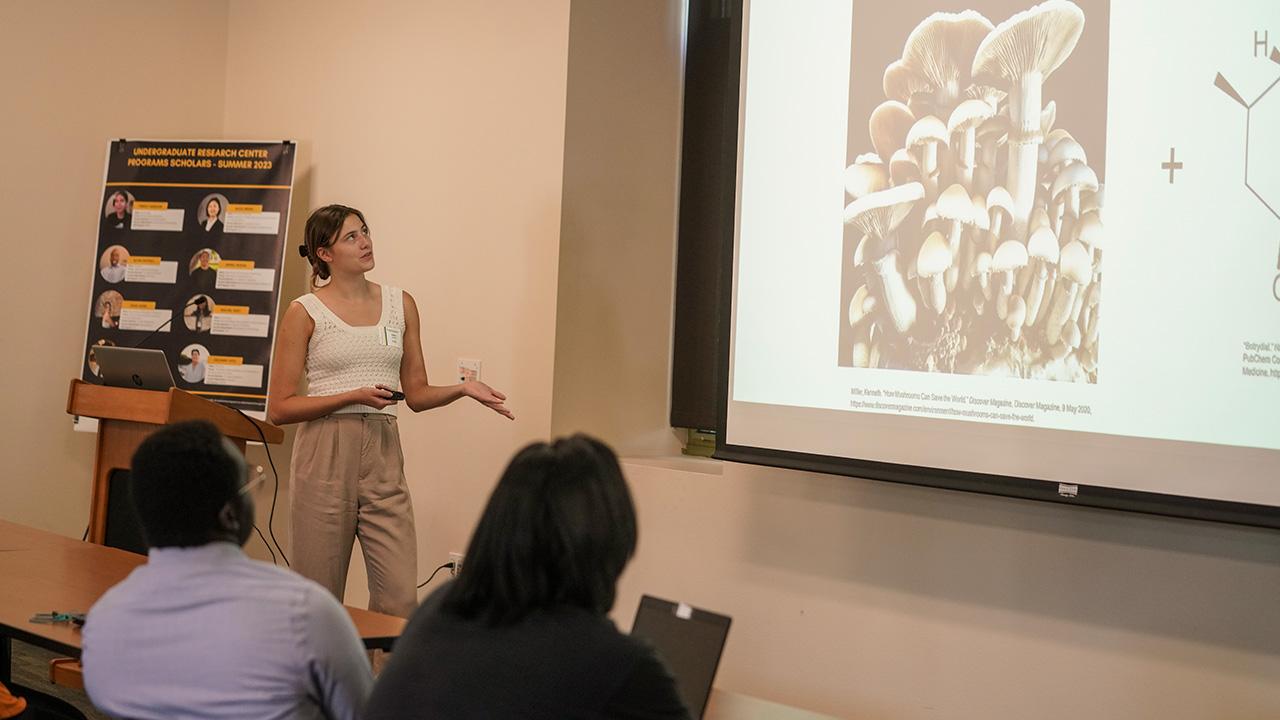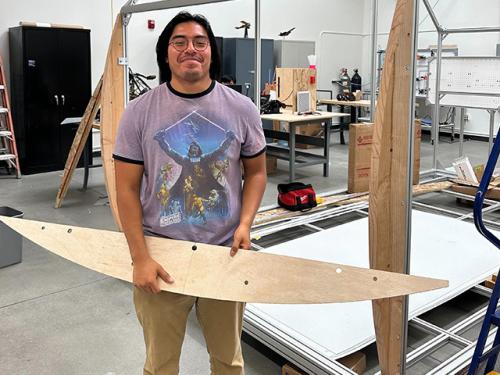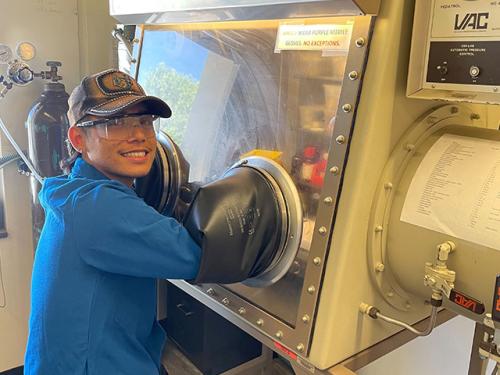
Undergraduates complete intensive summer research scholars’ programs
Research opportunities fuel graduate school, career success
Quick Summary
- UC Davis Science, Technology, Engineering and Mathematics (STEM) undergraduate students capped the completion of a 10-week-long summer research scholars’ program presenting their research findings at the 2023 Summer Undergraduate Research Symposium.
Several UC Davis Science, Technology, Engineering and Mathematics (STEM) undergraduate students capped the completion of a 10-week-long summer research scholars’ program presenting their research findings at the 2023 Summer Undergraduate Research Programs Symposium Aug. 25.
From Entomology to Statistics and from Chemistry to Aerospace Engineering, the subjects varied for the eight scholars. The impact, though, was significant for all.

“It was very helpful in so many ways. Firstly, I met amazing people and made some strong connections. I learned a lot about other fields,” explained Mechanical and Aerospace Engineering major Angel Rodas. “I got a lot of practice explaining my research and presenting my research to many people. It helped me with my postgraduation plans and gave me resources to find out more.”
For most of the students, like Rodas, these post-graduation plans usually include acceptance and enrollment in a graduate research program – a primary goal to the summer research programs.
"As an institution, it is important to ensure all students receive opportunities to participate in research and other experiences beyond the classroom, to support them in building their critical thinking and communication skills, and prepare themselves for various careers," explained Annaliese Franz, associate dean at the College of Letters and Science and chemistry professor. Franz, who led the symposium, serves as faculty director for two of the Undergraduate Research Center’s summer research programs. She works in collaboration with Lolita Adkins, who directs the STEM undergraduate research programs through the UC Davis Undergraduate Research Center.
The UC Davis Undergraduate Research Center currently administers three scholar programs:
- The California Alliance for Minority Participation (CAMP) is a branch of the Louis Stokes Alliance for Minority Participation (LSAMP) program funded by the National Science Foundation.
- Mentorships for Undergraduate Research Participants in the Physical and Mathematical Sciences (MURPPS) is funded by the College of Letters and Sciences Office of the Dean.
- Innovation Institute for Food and Health Undergraduate Research Fellowship is funded through the institute.
2023 student scholars
Yarely Aguilar (CAMP)
Major: Entomology
Department: Entomology and Nematology
Faculty sponsor: Amanda Hodson
Alvin Akpokli (MURPPS)
Major: Statistics
Department: Economics
Faculty sponsor: Katherine Eriksson
Julia Cook (IIFH)
Major: Neurobiology, Physiology and Behavior
Department: Plant Sciences
Faculty sponsor: Dan Kliebenstein
Andrew Li (MURPPS)
Major: Applied Chemistry
Department: Chemistry
Faculty sponsor: Frank E. Osterloh
Alice Meng (IIFH)
Major: Biological Sciences
Department: Entomology and Nematology
Faculty sponsor: Joanna C. Chiu
Angel Rodas (CAMP)
Major: Mechanical and Aerospace Engineering
Department: Mechanical and Aerospace Engineering
Faculty sponsor: Stephen K. Robinson
Rachel Shey (IIFH)
Major: Entomology
Department: Entomology and Nematology
Faculty Sponsor: Bruce D. Hammock
Zachary Vito (MURPPS)
Major: Chemistry
Department: Chemistry
Faculty sponsor: Susan Kauzlarich
The goal with each, Adkins said, is to increase the number of undergraduates successfully completing their bachelor’s degree programs and pursuing graduate education. Two of the programs, CAMP and MURPPS, target first-generation and underrepresented students with a goal to diversity the nation’s workforces in various scientific fields.
"These programs are distinctive because the structure incorporates a combination of faculty, staff and peer mentoring throughout the summer, with workshops and community activities as well as full-time participation in a research experience, with a stipend,” explained Franz. "The summer research experience also incorporates opportunities for community-building events, workshops for professional development and science communication."
Hands-on learning connects students with researchers
Most of this year’s summer scholars are first-generation college students. Not only are they the first in their families to pursue a bachelor's degree, but many were also previously unaware of career paths involving graduate degrees, especially in research.
The intensive programs prepare students into promising future scientists. In addition to the opportunity to conduct independent research, the student research often stems from larger projects led by research faculty, or graduate student mentors, in a variety of labs across campus. Students acquire skills and knowledge about working with research teams, conducting experiments and collecting data.
Rodas said it was a series of “fortunate mishaps” that led him to be part of the Human, Robotics, Vehicle Integration and Performance Laboratory, or HRVIP, at UC Davis.
“I never thought about graduate school before,” he said.
For Zachary Vito, a Chemistry major and MURPPS scholar, the opportunity in the lab not only solidified his graduate school plans but provided deep connections to his current studies.
“I love the lab work,” he said. “I can translate what I’m learning in the lab to what I’m learning in the classroom. I realize now I can do so much.”
Undergraduate research linked to student success
Raynell Hamilton-Starks, director for the UC Davis Undergraduate Research Center said these experiences underscore the value of hands-on experiences for undergraduate programs.

“Research is a high impact practice that has shown to increase persistence and retention for undergraduate students. Our summer research programs create a safe space for students from marginalized communities to build community while engaging in an experience that will not only help them build critical skills but also aid them in solidifying their post-undergraduate plans,” she said. “I am always excited to witness the growth of students throughout the summer experience! It brings me great joy when I hear students say, ‘This experience was amazing’ or ‘I had so much fun working on this project!’
For the last 20 years, numerous studies have found that students who complete summer research experiences are more likely to pursue doctoral degrees. Further, researchers also identified evidence that underrepresented students’ dedication to science careers increases if they belong to a supportive group with common interests.
As one of America’s leading research universities, UC Davis provides undergraduates a variety of research and other experiences outside the classroom alongside top-notch faculty. Summer scholars’ programs are just one way undergraduates may pursue research. Learn more about undergraduate research at the center’s website at urc.ucdavis.edu.
